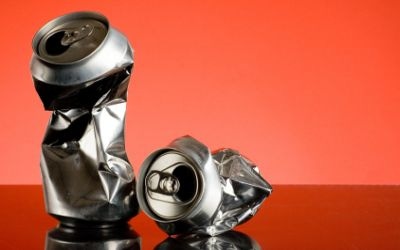FDA warns manufacturers on alcohol-caffeine beverages
FDA issued warning letters today to four manufacturers of alcoholic malt beverages with added caffeine, informing the companies the products named are being marketed in violation of the Federal Food, Drug, and Cosmetic Act. The companies have 15 days to respond and detail what steps they will take to come into compliance; if their response is insufficient, they could face injunctions and seizure of products.
November 17, 2010

Companies receiving warning letters included: Charge Beverages Corporation, for Core, Core High Gravity HG Orange, Core High Gravity HG Green and Lemon Lime Core Spiked; New Century Brewing Company, LLC, for Moonshot; Phusion Projects, LLC (dba Drink Four Brewing Company), for Four Loko; and United Brands for Joose and Max.
In a press briefing, Joshua Sharfstein, M.D., principal deputy commissioner of FDA, said added caffeine in beverages that are high in alcohol can mask some of the sensory cues people use to determine their level of intoxication. While the caffeine does not alter the bodys absorption or processing of alcohol, the altered awareness of intoxication from the alcohol-caffeine combination has been linked in the scientific literature to increased risk of alcohol-related consequences, he noted.
FDA was first informed of the questionable safety of these types of products in 2009 by a group of state attorneys general (AGs) which had reviewed products after several adverse events in their respective states, including Washington, Pennsylvania and New Jersey. The AGs got two major brewing companies to halt sales of their caffeine-containing alcohol products, but they were concerned about all the other smaller companies out there still selling these kinds of beverages.
FDA then asked 30 manufacturers of such beverages to provide safety data within 30 days. Sharfstein said despite the scope of the previous warning, this latest action focused on the four companies and seven products named in the warning letters because they are high in caffeine, are single servings and are readily available on the market, which enabled FDA to obtain and test the products for caffeine content. The action today does not say anything about the other products, he said. In the end, he affirmed, the four manufacturers receiving letters today failed to demonstrate to FDA, after multiple prior chances, the caffeine added is safe as used, which renders the caffeine as an illegal additive.
In addition to the input from the AGs, FDA consulted with experts in toxicology, emergency medicine and neurology, among other specialties. John Manfreda, administrator at the Alcohol and Tobacco Tax and Trade Bureau (TTB), which regulates the labeling and advertising of alcoholic products, said his agencys position is that these products are mislabeled. He said TTB will be notifying wholesalers, distributors and importers, as well as industry to confirmed their responsibility to ensure any ingredients in their alcoholic beverages are incompliance with regulations for additives.
As an additive, caffeine is not GRAS (generally recognized as safe), Sharfstein noted, adding these types of alcoholic beverages have not met the standard of safety and are considered adulterated. He cautioned companies selling similar beverages to those named in todays warning letters should take notice and make necessary changes. As for the four manufacturers named in the warning letters, they face additional enforcement should they fail to respond adequately. This is an important first step, Sharfstein said. Additional steps can be taken depending on the ability of companies to address the concerns we have and the dangers the scientific community has highlighted.
For his part, Manfreda noted those notified by the TTB will also face escalating penalties for ongoing failure to comply. In this case, distributors and wholesalers would subject their permits to suspension or revocation, he said. In the case of a pure brewer, who has no permit, wed have to look at appropriate remedies.
David Vladeck, director of FTCs Bureau of Consumer Protection, said these high-caffeine malt beverages are not your ordinary beers. They are super-sized, with an alcoholic content as much as 12 percent. This is twice the concentration of regular beerone can contains as much [alcohol] as four or five beers, he said, adding these products are very cheap ($3 or less). Consumers, particularly young, inexperienced drinkers, may not realize how drunk they are and continue [drinking] to the point of poisoning. This presents an unusual risk to consumer health and safety.
For more information on alcoholic beverage with caffeine additives, visit FDA.gov.
You May Also Like




.png?width=800&auto=webp&quality=80&disable=upscale)